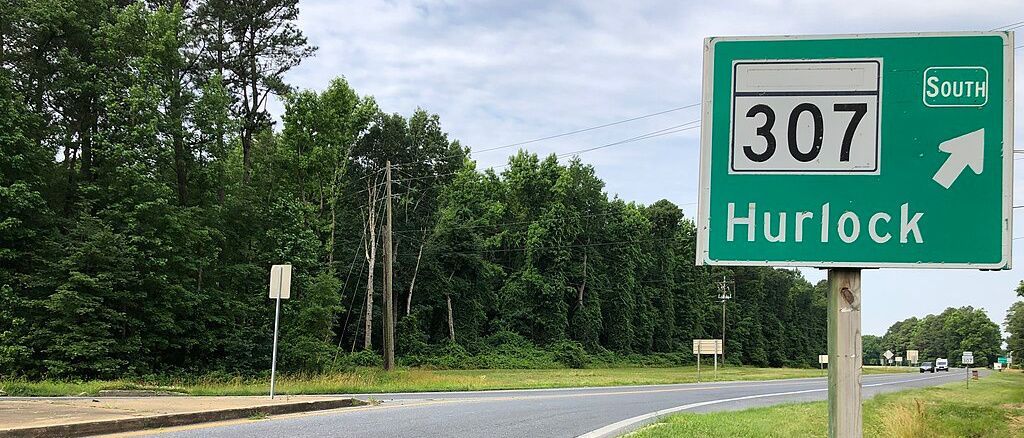Plastic Bag Bans on the Eastern Shore

In 2021, Maryland Delegate Brooke Lierman (D-46) introduced a bill to prohibit retail businesses from providing customers with plastic carry-out bags. That bill died in committee. But since the failure of the state bill, several Eastern Shore jurisdictions have passed or are considering passing plastic bag bans. Delaware passed a single-use plastic bag ban that went into effect in 2022.
Some may ask, “Why should we ban plastic bags? After all, they are very convenient and easy to carry when we are shopping.” According to an article on the website of Green Tumble Environmental Awareness, 300 to 700 plastic bags are used by the average American yearly. The fact is, there are many good reasons to eliminate their use:
- They pollute the environment.
- They are made from fossil fuels, the production of which contributes to global warming.
- They are composed of very resistant synthetic polymers that take a thousand years or more to completely degrade in natural environments.
- They are harmful to marine life and wildlife.
- They are also harmful to human health. Microplastics have been found in soft drinks, tap water, and seafood. Researchers have estimated that half the people on the planet could have some microplastics in their body.
- They are difficult to recycle. They tend to get caught in recycling machinery, so most recycling facilities don’t accept them.
- On average, plastic bags cost retailers 1-5 cents each. This cost is incorporated into the price of the items they sell. The cost of plastic bag cleanup is estimated at about 17 cents per bag.
- Plastic bags also have external costs, resulting from environmental degradation, including loss of quality of life.
- There are better alternatives available. The best alternative is the reusable shopping bag (those not made from plastic!)
- Other governments are banning plastic bags — around 60 countries and municipalities around the world to date.
That brings us back to the Eastern Shore communities that have banned the use of plastic bags. Chestertown banned plastic shopping bags in 2011. Unfortunately, that ban was never adequately enforced, and then was relaxed because of supply chain problems during covid. One retailer responded to the ban on “single-use” plastic bags by using what they refer to as “multi-use” bags, made from a heavier plastic. Anyone who looks at the bag recycling bin outside the store can easily deduce that they are not being used multiple times by many customers. Meghan Efland, a current member of the town council, recently pushed to revive the ban. (She stated, however, that the heavier plastic bags are exempt from the ban.) Her proposal was supported unanimously by the town council, with the proviso that a strong public education program be undertaken to prepare the way this time.
Salisbury’s bag ban took effect July 1. It includes a ban on all single-use plastic bags at the point of purchase. There is a long list of exceptions. The original ban included a controversial charge of 10 cents for each paper bag provided by a retailer, but that fee has been amended.
Easton passed a plastic bag ban in 2022. As of April 2023, retail businesses are prohibited from offering single-use plastic bags to customers. They may offer customers paper bags with a charge of not less than 10 cents a bag. The goal of the ban is for customers to use reusable bags to cut down on the waste and litter that results from single-use plastic bags. The legislation is quite specific about exceptions and about what constitutes a reusable bag and includes fines for violations. The ban applies to all retail businesses within Easton’s town limits.
The town of Centreville has also passed a ban on plastic bags. Town Council president Steve Kline led the effort, stating “We’ve got to do a better job. Those bags are winding up in the rivers. In the Chester River trash patch. In the Corsica River. In the creeks that my kids play in and fish in.” The council supported his ban proposal unanimously at their July 20 meeting. The Centreville ban will go into effect on January 1, 2024.
No doubt these actions by local municipalities will help to reduce the environmental pollution posed by single-use plastic bags; however, state and federal bans would do much more to protect the environment. Furthermore, plastics permeate our lives in many other areas as well, plastic straws being only a small example. Much work remains to be done.
A native of Wicomico County, George Shivers holds a doctorate from the University of Maryland and taught in the Foreign Language Dept. of Washington College for 38 years before retiring in 2007. He is also very interested in the history and culture of the Eastern Shore, African American history in particular.
Common Sense for the Eastern Shore







